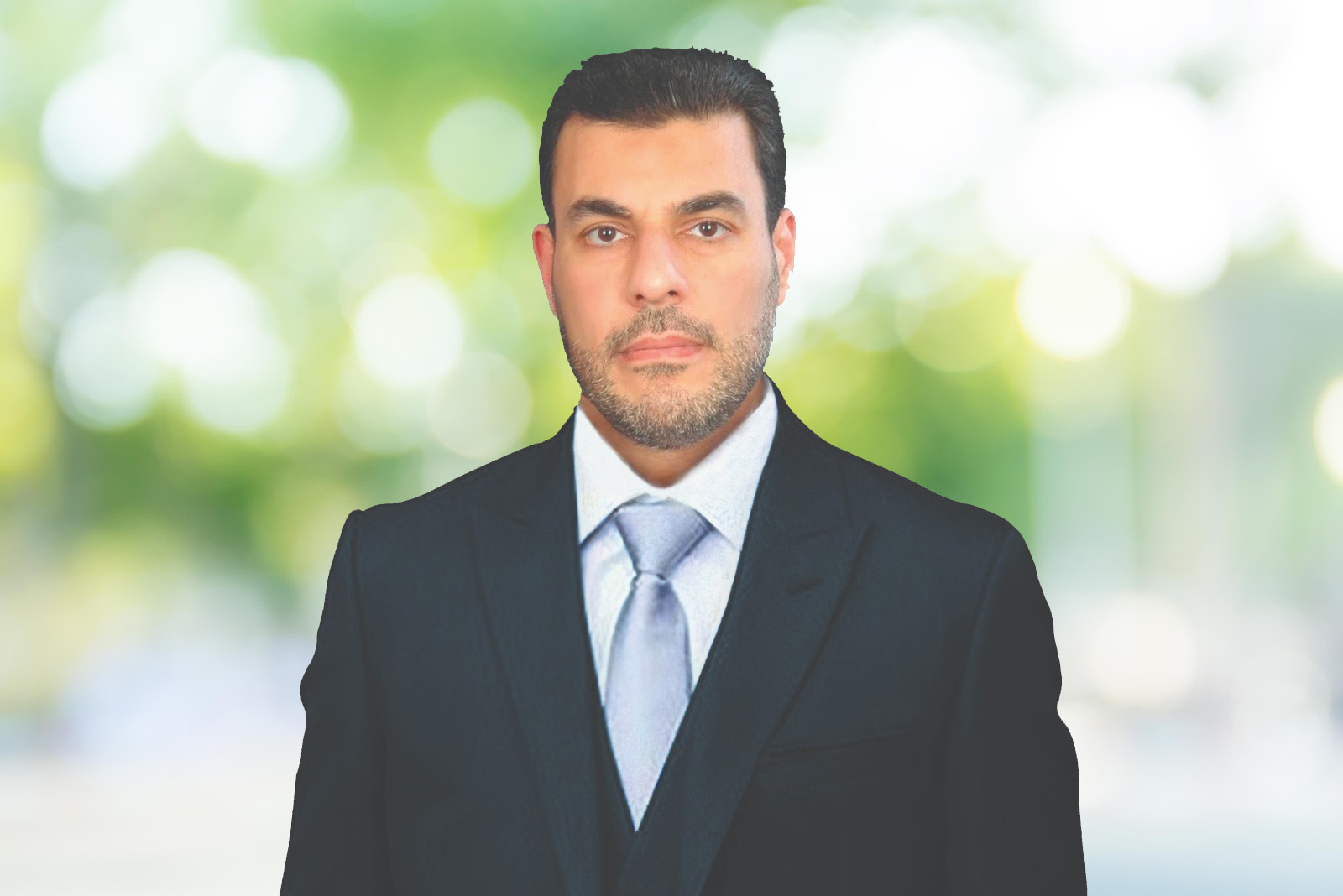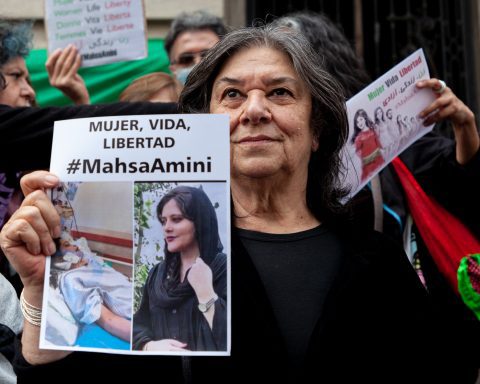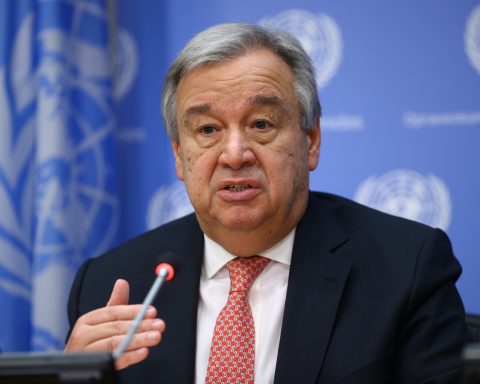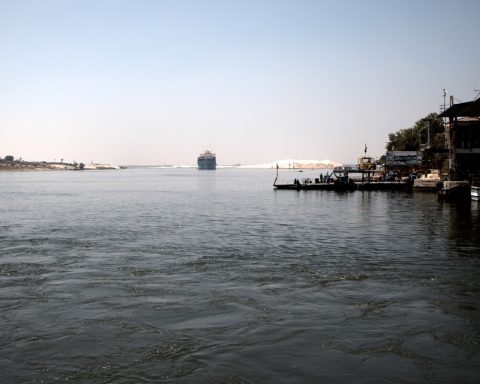Abdennour Toumi: François-Marie Arouet, known as Voltaire, once said: “While states have armies, the Prussian Army has a state.” What are the reasons for the idea that Arab armies have states? Is this idea accepted in terms of military influence on societal spaces in Arab countries?
Prof. Abdel-Fattah Mady: In the Arab world, we must be very careful when we touch on these words. In general, armies in third world countries emerged in different contexts from those in which European armies emerged in the post-independence period. Armies began to be seen as the driving force of unity and modernization, but many of these goals were not achieved.
There are objective factors that lead to many negative phenomena regarding the nature of power in the Arab world. I touched on some of these in my latest book, “Democracy & Weapons: Civil-Military Relations and Reform Policies of Armed Forces,” published by the Arab Center for Research and Policy Studies in 2021. Here, we can briefly mention the “distorted formation” of the Arab countries that emerged after the First World War and suffered from at least three contradictions. First, these countries were built without an appropriate political ideology grounded in the culture and heritage of their societies. This ignores the history and culture of the region, of which Islam is the building block, as well as the norms of state-building. Here, we should think of Islam not only as a religion, but as an inclusive crucible for the civilization, values, and cultural heritage of the region. Secondly, tyrannical and oppressive regimes have been established in these countries, working for narrow interests and relying on the empowerment of the peoples and the hostile internal and external powers to their cultures to maintain themselves. In addition, minorities in these countries, such as families, parties, or the military, have seized the power and resources of the countries. Such regimes did not even know the procedural understanding of secularism, that is, the functional separation of religion and state without hostility to religion. Third, these countries were built in complete contradiction to the logic of the modern state, which is primarily concerned with the unity of peoples and the right to self-determination, and which is based on the principle of “nationalism”. The opposite of these principles was applied in Arab countries. As a matter of fact, the colonial powers carried out a great deception; that is, they promised the Arabs a united Arab state in return for supporting the British army against the Ottoman Empire in the First World War. However, the main purpose of these colonial countries is to lay the groundwork for a “Jewish” state in Palestine under the name of “the national home of the Jews”, to prepare for this state under the name of “mandate” or “protection”, to divide the region into statelets over disputed areas and surrounded by artificial borders, and finally to overthrow the Ottoman Empire.
These contradictions have brought many other problems, especially the phenomenon of military intervention in politics. In some cases, armies have even evolved from modern institutions into repressive forces that reinforce traditional sectarian structures or defend private interests. Some of these have created ideological polarization and intellectual conflicts, wasted national wealth and opportunities for development and dignified life, and strengthened foreign dependency. Therefore, the intervention of the military in political life is at the top of the problems, and its repercussions are clearly seen in most of the Arab republics, such as Iraq, Syria, Egypt, Algeria, Sudan, Libya, Mauritania, and Yemen.
Abdennour Toumi: If the main purpose of the military is to defend national sovereignty and protect state institutions, what is the relationship of the army to power in the equation of peaceful engagement in political practice?
Prof. Abdel-Fattah Mady: As I have noted, the intervention of armies in politics is one of the consequences of deeper problems. The main imbalance in Arab countries is the imbalance of power between those who have weapons and those who do not. In addition, some civilians from various movements in countries such as Iraq, Syria, Egypt, and Sudan have used the armed forces to resolve political conflicts, rather than establish a system to manage differences through peaceful mechanisms. Unfortunately, religion has also been used in the struggle for power, and ideology, among other tools, has been exploited either to hinder reform and change, to justify the positions of the various parties, or to propagate goals that can be implemented only after agreeing on the nature of political rule and determining the relationship of the weapon to these governments. Therefore, addressing the imbalance regarding the role of the military requires looking at the bigger picture and getting to the root of the problem.
Abdennour Toumi: What is the best type of civil-military relations to ensure the success of any means of a peaceful transition of power?
Prof. Abdel-Fattah Mady: In particular, the success of a peaceful transition to democracy entails several requirements. In terms of civil-military relations, the foremost of these is that the armies support the transition processes or at least remain neutral among various political forces. However, this is not actually fulfilled. Therefore, the unity of the civilian ranks behind the project of transitioning to a democracy is a basic requirement to force army generals to accept the transition. In other words, a transition to democracy is not possible unless there are democratic forces that agree on democracy itself and its attainment. The emergence of what might be called a democratic bloc or historical democratic bloc is the only possible factor in changing the balance of power between the physically strong army and civilians. Without it, the balance of power will remain tilted in favor of the ambitions of a general or group of generals. This imbalance will remain at the expense of the democratic transition and even the armies themselves, which have been greatly weakened by politicization.
As for the best type of civil-military relations, I can say that the best type is one the world’s nations have reached after a long historical development, based on the rule of law, institutions, and transparency, where everyone is equal before the law, and both civilian and military officials are accountable. In this context, the concept of civilian control over the armed forces, that is, the concept of the military institution not playing the role of tutelage over civilian institutions, emerges. What is required here is the control of democratically elected civilian institutions over all non-elected institutions, especially military and security institutions. My latest book contains many details on five areas of public policy aimed at establishing civilian control over the armed forces and modernizing military institutions.
Abdennour Toumi: Why don’t Arab countries draw on the experience of other military-ruled countries? For example, the generals in the military administration in Chile in 1989 were able to change the situation in the country without overthrowing the administration of General Augusto Pinochet.
Prof. Abdel-Fattah Mady: This, in my opinion, depends on a few factors. For example, there is a stereotype adopted by us and by others that situations in Arab countries are unique compared to other situations. This is not a precise enough description. Of course, methods of change and reform cannot be copied exactly from others, but it is possible to use them to avoid difficulties and cope with adversity. Unfortunately, the lack of awareness and knowledge of the experiences of others is another problem in this regard. In a collective book published by the Center for Arab League Studies in 2009, I wrote that, “while the rulers in the Arab region learned some lessons, the opposition and reformist elites did not.” There are other factors associated with the ability of authoritarian regimes to suppress dissent, infiltrate, create divisions among them, and fuel identity polarization. There are also factors related to the conflicting advice that some Western research centers offer to activists in Arab countries, for example, promoting certain meanings of concepts or mechanisms of democracy or identifying unacceptable preconditions. Democracy has common general features such as the rule of law, the state of institutions, citizenship, and fundamental freedoms. However, the details of the construction of democratic systems must be adapted to the conditions and culture of each country. For this reason, we cannot see two democracies that fully overlap each other.
Abdennour Toumi: It is certain that the military establishment constantly strives to ensure the survival of the state. However, the issue of respect for the constitution requires that the actors playing important roles in the state apparatus have a deep military and political culture. Who controls the current political structure? If this is the civil, what is the influence of the military on the government?
Prof. Abdel-Fattah Mady: Transforming military and civilian culture is also an important issue. This takes a long time and cannot be accomplished quickly. That is why in my book, I distinguish between two phases. The first stage is the “transition to democracy” process, which requires the support of the army, or when democratic civilian forces come together and force the army to accept it. Success at this stage is the prerequisite for the success of other steps to be taken in the second stage, the “democratic transformation” process. If successful, the process results in democratic consolidation. In the democratization process, civil-military relations are handled gradually.
As I mentioned, there are five areas of treatment, all stemming from the existence of a truly democratic constitution based on the rule of law, functioning institutions, transparency and accountability. These five aspects cover a range of public policy areas: (1) policies that support civic democratic institutions: the stronger these institutions are, the more they can reform civil-military relations, (2) policies that support the rule of law, the independence of the judiciary, and supervisory institutions, ( 3) defense and security sector policy: under which the functions of security and intelligence agencies are defined and the Department of Defense is formed, headed by a civilian minister, (4) policies to promote civil liberties and rights, and (5) increase trust between military institutions and society as a whole.
In the fourth and fifth areas, the rule of law, functioning institutions, and the culture of freedom are embodied in all parts of the state. The book describes most of the necessary policies at this point. These include the reform of military academies and the inclusion of law and humanities courses given by civilian academics to support this culture, the opening of lectures and academic programs on military and security issues in civil universities, as well as the creation of civil society organizations specializing in defense and security. It is supported by research centers and scientific journals specializing in these fields.
As a result, the consolidation of democracy depends on a very important criterion; that the political differences between civilian and military cadres are not resolved by recourse to armed force (i.e, by the direct intervention of the army or by the bullying of another party by the armed forces), but rather by peaceful means, i.e. in the democratically elected parliament. There is a broad belief in research centers and non-governmental organizations that this can happen through free discussion and, when necessary, through independent courts.
Abdennour Toumi: How do you assess the sympathy of the masses and some elites for the army, for example, in the cases of Algeria and Egypt?
Prof. Abdel-Fattah Mady: Arab armies are national institutions, and many of them have played historical roles in establishing and maintaining states and have fought bloody wars against the Zionist occupation state to defend the nation. A distinction must be made here between armies and generals who have acquired political ambitions as a result of the objective factors we are talking about, or the politicization of armies. The army as a national institution must be defended and its strength, professionalism, and budgets must be increased. As for the political ambition of the generals – or the political or economic role of military institutions – these issues must be addressed by strengthening the rule of law, functioning institutions, transparency and accountability within transparent and publicly functioning mechanisms, where everyone is subject to the law and held accountable for their duties. This is done gradually, with the help of the soldiers themselves, and according to established standards.
On the other hand, speaking of public sympathy, we cannot ignore the fact that the authorities in power control the media, education, and society and have many tools of intimidation and seduction. Therefore, it is not possible to rely too much on any tool to measure public opinion in countries where authoritarian regimes rule. However, if you leave the squares free, you will find the majority of citizens sided with the rule of law, social justice, liberties, and the fight against corruption.
Abdennour Toumi: As a continuation of the previous question, what does it mean for the voters, who now reject the ballot box, that retired military officers or their family members emerge as a new class, and their transformation into oligarchs by taking advantage of economic freedom?
Prof. Abdel-Fattah Mady: This is an indication of how important it is to agree on certain criteria for elections, namely that elections should be democratic, free, fair, and fruitful. I mentioned these criteria under the heading “When will the elections be democratic?” in the 2007 Beirut issue of the Arab Journal of Political Science. The point I want to highlight here is that democratic and non-democratic elections are a fact. Also, there are democratic and non-democratic constitutions. Unfortunately, these issues are deliberately confused in many Arab countries, and democracy is therefore discredited by some.
The historically tested solution here is to build a transparent political public sphere based on the rule of law and equality before the law, the independence of the judiciary and supervisory institutions, the flow of information, and the freedom of the press and media. These are issues that make it possible for everyone to be involved in the public sector or the economic sphere on the one hand, and re-establish confidence in electoral matters, on the other. The exchange of ideas and public debate should revolve around these issues. If attention shifts to these issues instead of focusing on identity problems that cannot be resolved under oppressive and tyrannical regimes, political power centers can agree on them.
Abdennour Toumi: Has the concept of the military’s role in Arab countries changed in the era of extremist terrorist groups and cyber warfare? What about the concept of a “permanent coup” by former French President François Mitterrand?
Prof. Abdel-Fattah Mady: There is no fixed model that can be used in the management of civil-military relations. Everything is in a constant state of flux, with the evolution of themes, the evolution of weapons, the types of threats and wars. As in every social system, the development of the nature of civil-military relations takes a long time. The short answer to the question is yes, the concept of civil-military relations should change with the development of reality, but this change should not be in the direction of the military having tutelage over the people and their elected institutions. It should also be noted that any role the armies undertake in crisis and emergency situations should be temporary within the boundaries of the constitution and law, and those concerned should be held accountable for their actions if they exceed the limits set by law while performing these temporary duties.














